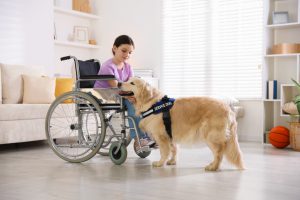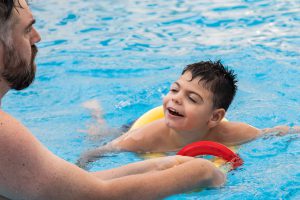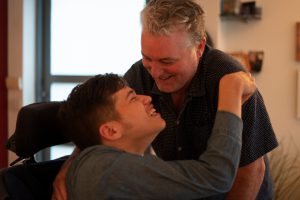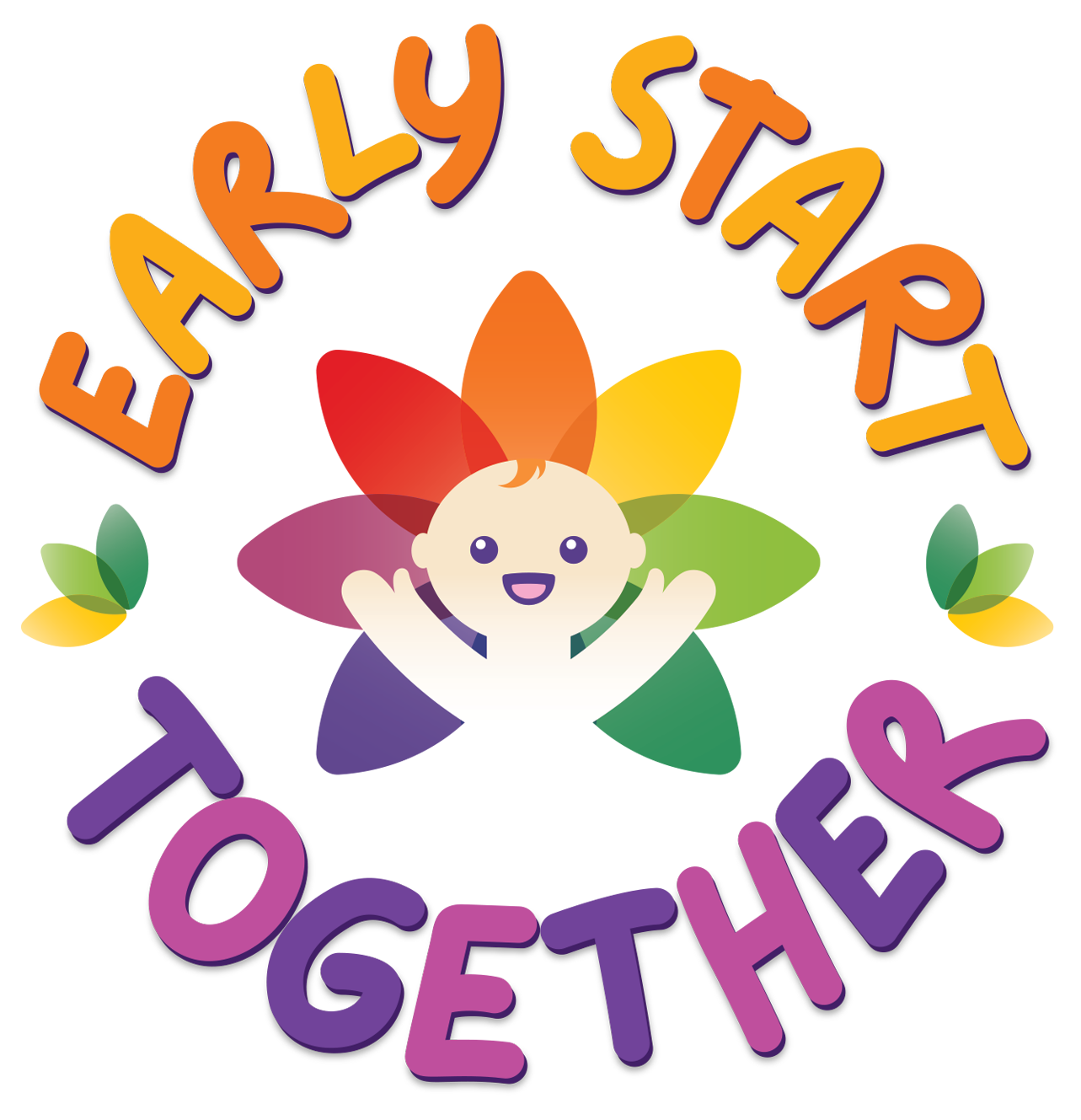Babies & Toddlers
Share this page:

Looking for guidance to support your baby or toddler who may have developmental delays or disabilities? You’ve come to the right place.
In this section of the EFRC Learning Library, we’ve gathered some of our most helpful tips, clear explanations, and trusted links to guide families through the Early Start years—birth to age 3. Understanding your child’s rights, developmental milestones, and the support that may be available to your family can make a big difference.
Whether you’re just beginning to notice concerns, in the process of evaluation, or already receiving services through Early Start, this library offers resources to help you make informed decisions. You’ll find information on eligibility, Individualized Family Service Plans (IFSPs), your role in the Early Start process, and how to advocate effectively for your child.
At EFRC, our goal is to support you in becoming a confident partner in your child’s development. Don’t hesitate to reach out to us with questions. Those of us who support families directly have professional training in this field… but we also are ourselves parents of children and adults with disabilities. We have walked a similar road. We get how overwhelming it can be.
Links | Babies & Toddlers
- Alternative Payment Program (childcare subsidy for low to moderate income families)
- YMCA Enhanced Childcare Referral Service
- Medi-Cal disability waiver (overview by Disability Rights CA)
- In Home Supportive Services (IHSS) for children
- California Early Start Point of Entry | call EFRC at (619) 594-7416
- Social Security Income (SSI) for children
- California Children’s Services (CCS) San Diego County or Imperial
- Healthy Development Services (HDS) San Diego (for families not yet in Early Start)
- Zero to Three
- Pathways
Get Support
Build Your Village

Learning Library Resources | Ages 0-3

Holidays | Making Things Easier
Holidays can be stressful for any family. But when additional support needs are present, it can be even tougher. Check out these tips from the trenches on making holidays easier.

Behavior | Tips for Responding with Curiosity
Have you heard the phrase, “behavior is communication”? Check out these tips for how to your child’s behavioral challenges like a detective. What do they need right now?

Finding Childcare | Tips and Strategies
Need to find a childcare for your child? Are you concerned that they will have the support they need? Check out these tips for finding and working with a provider.

Care Binders | Tips for Getting and Staying Organized
Learn great tips and strategies for keeping the information you need organized and easy to find — using what we call a “care binder.”

Let Them Help | Tips for Gaining Cooperation
Support cooperation with your child — and better behavior — by building routines with your child.

Helpful Home Strategies for Early Learning
Learn how to boost literacy, math, and social-emotional skills using everyday activities at home—no expensive curriculum or flashcards required.

Smart Spaces: Making Your Home Fun & Functional
Learn how to design safe, sensory-friendly, and functional spaces for children with disabilities—on any budget—with artist and advocate Emily Dolton.

Water Safety
Expert swim coach shares practical water safety and swim lesson tips for children with disabilities, with San Diego and Imperial County resources.

Play for All Play Skills
Learn how play-based learning supports development, fosters inclusion, and builds lifelong skills for all children—especially those with disabilities.

Managing Holiday Stressors
A supportive conversation to reframe holiday stress and offer parents a compassionate path toward rest, connection, and emotional balance.

Promoting Healthy Eating Habits
Learn family-friendly strategies from UCSD’s Dr. Dawn Eichen on healthy eating, picky eating, and weight management—including tailored tips for children with autism.

Managing School Transitions
Learn how to create a portable IEP that ensures your child’s services continue smoothly when changing schools, with practical tips for every step of the move.

Air Travel Tips
TSA shares tips with EFRC families who will be traveling with individuals with disabilities. Topics include how to request support, navigate security smoothly, and use TSA PreCheck.

Neurodiversity in Children’s Literature
Children’s author Sally J. Pla shares empowering books that center autistic and neurodivergent kids, plus tips for choosing inclusive, authentic stories.

Applying to SSI: Tips from Disability Rights California
Learn how the SSI process works for children and adults with disabilities, what information to include, and how to clearly document real limitations to support an accurate eligibility decision.

California Early Start and Individualized Family Service Plans (IFSP)
A step-by-step guide to Early Start services, IFSPs, and transition planning for families in San Diego and Imperial Counties.

Would an OT Assessment Benefit My Child?
How to tell if your child may benefit from occupational therapy—signs to watch for and what to do next.

In-Home Supportive Services (IHSS): What to Know (Spanish available)
A plain-language video guide on In Home Supportive Services (IHSS) for families in San Diego and Imperial Counties—what it is, who qualifies, how to apply, and how to get the right support at home.

Combating Needle Fear: Tips from a Child Life Specialist (Spanish available)
Support for kids with sensory needs and needle fear. Learn calming strategies for shots and blood draws—especially helpful for children with disabilities or autism.

Pill Swallowing: Tips from a Child Life Specialist (Available in Spanish)
Learn fun, kid-friendly techniques for teaching children to swallow pills with confidence—using candy, creativity, and calm encouragement.

Tackling sleep issues
Tired of bedtime battles? This video shares simple, realistic sleep strategies for families of children with disabilities—because better sleep helps everyone.

Stuck on a waiting list?
Waiting for an evaluation, diagnosis, or therapy can feel like everything is on hold. But there are still things you can do. From checking for cancellations to exploring community-based programs and building supportive connections, there are steps you can take now.

Requesting an Assessment for Special Education
If your child is having a hard time in school—whether it’s focusing, learning, or connecting with others—you might be wondering if there’s something more going on. Asking the school for a special education evaluation can be a powerful first step.

Has your child been found ineligible for Regional Center services?
Getting a “not eligible” letter from the San Diego Regional Center (SDRC) can feel discouraging—especially when you know your child has real needs. But this isn’t the end of the road.

